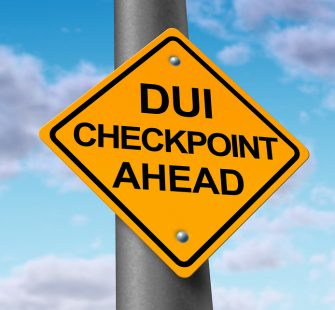
Can an Officer’s Observations Alone Lead to an Impaired Driving Charge?
November 10, 2017
What Is the Alberta Checkstop Program?
November 24, 2017Implied Consent Laws
When you sign the forms to apply for a driver’s licence, you agree to comply with requests made by police officers to undergo chemical or blood testing to determine your blood alcohol concentration (BAC). In the impaired driving context, chemical testing may include breath, blood, and urine tests. A breath test may be administered on the side of the road or at any location. However, blood and urine testing must be performed at a medical or detention facility.
If you have been arrested or charged with an Alberta impaired driving offence, you should never try to address the situation yourself. Rather, you need experienced legal representation by your side every step of the way. The knowledgeable lawyers at AIDD can ensure that all your legal rights are protected while your criminal case is pending and can zealously advocate for you in the courtroom.
Types of Implied Consent Laws
- Implied consent laws include the following:
- Producing a driver’s licence and proof of insurance when asked to do so by a police officer after being pulled over
- Consenting to a blood, urine, or breath test—if requested—in order to determine your blood alcohol concentration (BAC)
- Performing a field sobriety test, such as walking in a straight line, if the police officer so requests
Your Legal Rights
Implied consent laws come into effect when your BAC exceeds a certain level (typically .08 percent), or you refuse to undergo a chemical or breath test when requested to do so by a police officer. Under Canada’s impaired driving laws, if you are pulled over by a police officer, you have a legal obligation to comply with a breath test demand or a demand for chemical testing.
If you refuse to take a breath test at the scene, you will be charged with refusing to provide a breath sample. Since this offence carries the exact same penalties as impaired driving, you should provide a breath sample or take a Breathalyzer test if the officer requests one. An officer may also charge you with refusal if she believes you are feigning attempts to provide a valid breath sample.
It is also important to note that if you are pulled over, and the officer requires you to take a breath test or undergo another chemical test, you do not have a legal right to speak with a lawyer while you are being detained, and you are not entitled to the presence of legal counsel before providing a roadside breath sample. However, if the officer subsequently arrests you, he is required to inform you of your legal right to speak with a lawyer. The officer must also provide you with a reasonable opportunity to do so.
Contact an AIDD Lawyer Today for a Free Initial Consultation and Case Evaluation
If you believe your rights were violated during a traffic stop, you need legal representation in your case. The lawyers at AIDD can discuss the facts and circumstances of your case with you and may be able to represent you during court proceedings. To schedule a free consultation and case evaluation with an AIDD lawyer, please call us today at (403) 457-4415 or contact us online.





